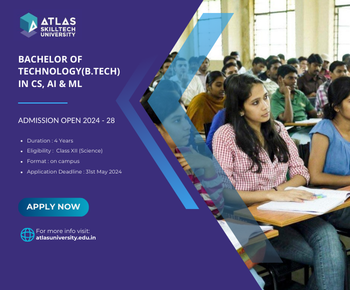Strategies and Study Tips for Exams or Best Ways to Prepare for Exams
The study system you set for yourself will also have a great role to play here. Listed below are few tips you need to follow which can help learn effectively to prepare for exams.
November 17, 2021

Career Expert & Blogger

Before I explain how to prepare for exams the right way, I want to cover what is the wrong way of doing it.
-
One of the worst ways is cramming, or what the author refers to as ‘massed practice’. That is, waiting until the last possible moment and then re-reading and reviewing material in one or more very intense long blocks of time right before the exam is given.
-
Secondly and worst of all is that simply reading and re-reading is not an effective way to actually commit knowledge to long-term memory or effectively apply that knowledge to complex scenarios that typically appear on exams. They are only giving themselves a false sense of security that may prove illusory when they take the exam.
The best way for exam preparation:
-
Self-Testing: Make a question paper for yourself for anything you may be tested on.
-
Core Area: Focus on one set of class notes, a chapter, or even a single concept at a time.
-
Prepare Balanced Schedule for Study: A balanced study schedule for preparation of exam is the best approach. Some students seem to thrive on last-minute ‘cramming’ which is not the best approach for an exam although widely accepted. Write down how many exams you have and a number of days on which you have to sit them. Then organize your study accordingly. You may want to give some exams more study time than others, so find out a balance that you feel comfortable with.
-
Group Discussion: Get together with your friends and arrange a study session. You may have some questions that they have answers and vice versa. Make sure to stay focused only on studies while managing your time.
-
Do not multitask: Multitasking makes a person dumber, less creative and also side tracked. There are studies also which has mentioned that students who are good at multitasking are perfect, but are average in their scores. To be effective, the student should only focus on one aspect at a time. Hence, the student must not try multitasking like studying, watching TV, surfing net etc.
-
Past Year Papers: Past examination is one of the most effective ways to prepare for exams. This helps you get used to the format of the questions, and – if you time yourself – can also be good practice for making sure you spend the right amount of time on each section.
-
Critical thinking abilities: For longer answers, provide strong reasons and evidence for the points that you make – just as you would for a good coursework essay or report. You can find out more about critical thinking in my book on this topic, Critical Thinking
-
Pictorial way of learning: The graphical representation can be really helpful while preparing certain topics. Make summaries, chart, diagram and graphical representation of the most important topic. This will be helpful while making revision and when exams are close these visual aids will really help you revise the topics.
-
Compress the information: Making use of acronyms is one best way for effective and fast learning. A mnemonic device is the best way for studying and can be used wherever possible. By this way, information can also be summarized where one can develop a mind map, comparison table, and diagram.
-
Discussion is the key: Involve your friends for solutions to important topics. Every friend will have its own expertise on a certain topic. In this way, you can discuss many topics/subjects with different friends. Explain answers and questions before them, they will make it clear and highlight the areas where you need more work.
-
Hand notes should be the preference: Processing and reframing of sentences are done by students who take notes by hand.
-
Visualize: Students should remember to visualize every concept they learn. Visualizing makes it easy to understand and remember.
-
Break time: Take intervals of 5 – 10 minutes after every 50-60 minutes of study or preparation. For long-term retention of knowledge, taking regular intervals really helps. Everyone’s different; try to develop a study routine that works better for you. If you’re more productive at night time, take a larger break earlier on so you’re ready to settle down in the evening. If you study better in the morning, start early before taking a break at lunchtime.
-
Drink plenty of water & healthy diet: Remember that being hydrated is most essential for your brain and body to work at its best. Make sure to keep drinking plenty of water throughout preparation. Try yourself to keep away from junk food. Healthy food has a great impact on your brain and body. Your energy level and focus depends on what you eat. Keep your body and brain active by choosing nutritious foods that have been proven to aid concentration and memory like fish, yogurt, nuts, and blueberries etc.
-
Exam day Essentials: And finally, make sure that everything is ready well in time before the start of the exam. Don’t leave it to the day before to suddenly realize you do not know the way, or what you’re supposed to bring to exam center. Check all the rules and requirements well before time and plan your route and journey time. If possible, do a test run of the trip. Also, work out how long it will take to get there and then add some extra time.



